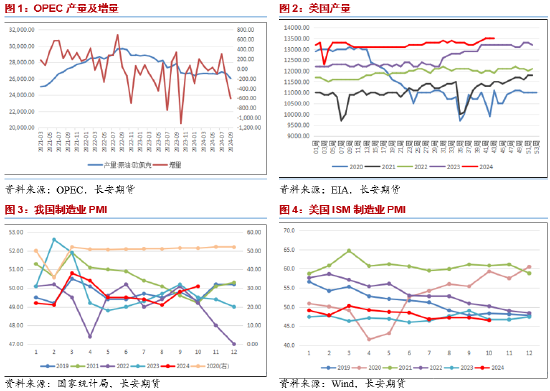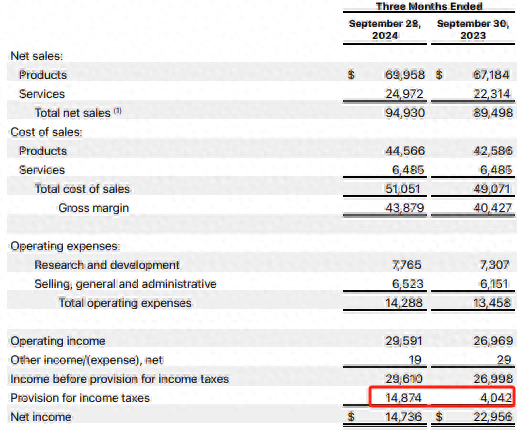德维尔潘:中国改革以及对未来选择的影响
中美贸易战如果出现最糟糕的情况,全球经济增长会下降17%。但迄今为止中国的对策比较明智,即建立长期替代方案并推动内部改革,显然是对美国单边主义行为最好的回应方式。 法国前总理多米尼克 德维尔潘在由《财经》杂志、、《财经》智库主办的 2018三亚财经国际论坛 上如是表示。
法国前总理多米尼克 德维尔潘
德维尔潘认为,中国仅花了四十年就开创了有自身特色的现代化模式,1978年到2018年,中国在全球经济中的份额从仅占2%变为现在的超过15%。城市化大大改变了中国的城乡面貌:2010年以来,中国50%以上的人口居住在城镇。现在中国政府正努力打造新型城市,改善公共服务,追求低能耗,并实现自然保护。河北省的雄安新区就是例子。
同时,德维尔潘深信,五年前习近平主席提出的一带一路可能对未来跨境稳定产生巨大的影响。新丝绸之路倡议既全面又国际化:首先,该倡议可改变当前政治格局,积极发展中亚和非洲等落后地区,促进各国政府和人民之间的对话。2015年亚投行的成立就是承诺推动多边合作的明确标志;其次,该倡议可改变当前经济格局,主要投资能源、交通、数字产业和基础设施等可持续发展领域。仅在亚洲,到2030年打造基础设施带来的投资需求就将达到26万亿美元左右;第三,该倡议可改变当前文化交流格局,促进相互理解和多样化,例如更多中国学生前往欧洲求学。
另外,德维尔潘还表示, 我们需要新的金融和货币协调结构。我认为以三种主要货币 美元、人民币和欧元搭建全新强大的货币系统后,可通过促进合作协助恢复信任并支持全球增长。但本次G20会议期间错过了机会。
以下为发言实录:
女士们,先生们,
亲爱的朋友们,
很高兴来到三亚,与各位广受尊敬的学者和与会人士讨论经济和金融问题。首先,我要感谢所有出席会议的人士,以及尽心尽力举办本次会议的主办方,特别是我的朋友王波明,还有他领导的优秀团队。
再过几个星期,2018年即将过去,今年是中国1978年改革开放的四十周年纪念,对中国来说具有重要的意义。
四十年来,中国和世界经历了深远且巨大的变化。不管是11月举行的APEC峰会,还是刚刚在阿根廷举办的G20峰会,都能看出世界面临转折点,全球合作和世界繁荣都在承受历史性的压力。
在此背景下,有必要认真地回顾过往,为将来做好准备,也为下一代描绘整体的解决方案。作为全球化的重要利益相关者,当今中国有望在促进对话和开放方面发挥越来越大的作用。
I .中国仅花了四十年就开创了有自身特色的现代化模式
-首先,中国经济在开放的影响下实现全面转型
看看身边,三亚的高楼大厦、公司和就业都是经济发展影响中国人日常生活的证明。一些惊人的数字可凸显过去几十年里中国经济实力的崛起:
上世纪70年代以来,中国经济增长保持年均10%的增速,GDP增长了约80倍;
1978年到2018年,中国的国内生产总值(原文为production,查询统计局数字后发现略有差异,但也可能是援引数字统计口径不同导致 译者注)从1500亿美元增加到超过13万亿美元;
这意味着中国在全球经济中的份额从仅占2%变为现在的超过15%;
在诸多经济领域,中国已成为全球增长的推动力:
贸易领域,2010年以来中国已成为全球最大的出口商,出口总额约2.3万亿美元;
投资领域,2015年以来中国在海外投资盈余首次超过1500亿美元;
创新和科技公司领域,阿里巴巴、腾讯和百度市值加起来超过8000亿美元,这些公司都是中国经济发展的重要力量:
-其次,中国社会因发展和城市化发生巨大变革:
中国经济转型的同时,就业、教育和公共服务等社会福利也在持续改进:
贫困现象大幅减少:40年来约有7亿人逐渐脱贫;
城市化大大改变了中国的城乡面貌:2010年以来,中国50%以上的人口居住在城镇。现在中国政府正努力打造新型城市,改善公共服务,追求低能耗,并实现自然保护。河北省的雄安新区就是例子;
互联网和新技术发展也有助于传播知识推动发展。2014年,超过一半的中国人可以上网,现在已接近8亿人;
与此同时,中国发展也面临新的重大挑战,需要解决:
首先,中国工业和城市现代化为健康和自然环境造成了越来越大的压力。现在中国碳排放量占全世界的30%,这还是中国快速实现减排之后的数字。2005年以来,单位GDP温室气体排放量已降低46%;
其次,中国新经济迅速发展,对金融稳定挑战越来越大。现在中国债务总额已达约30万亿美元,占中国GDP的250%左右。政府已提出重点是降低私人债务,尤其要解决国有企业的低效问题;
第三,经济放缓可能是未来十年的重要问题之一。拉动内需并实现经济高质量增长是避免经济硬着陆的决定性因素。
II. 当前的中国要在国内改革和进一步国际化的基础上,进入新的发展阶段
-首先,这点很必要。新出现的全球秩序里,美国走上了孤立道路,商业局势日渐紧张,要求中国以自己的方式适应
过去几个月,中国进入了面临新型经济挑战的时期。美国总统特朗普决定宣布对价值2000亿美元的中国进口商品提升关税,还威胁对另外2670亿美元的商品提升关税,在贸易领域引发螺旋上升的负面影响。贸易冲突升级可能演变为影响国际经济增长的长期危机:
首先,中国和美国经济都会受到一系列关税和报复措施的严重影响;
其次,由于相互依赖性日益增强,全球经济会受到连带影响。中美贸易战如果出现最糟糕的情况,全球经济增长会下降17%。
但迄今为止中国的对策比较明智,即建立长期替代方案并推动内部改革,显然是对美国单边主义行为最好的回应方式:
首先,中国政府表现出促进和捍卫自由贸易的意愿:2017年1月习近平主席在达沃斯演讲,再到几天前的G20峰会期间,中国承诺支持自由贸易,中国一直坚持开放与合作的原则;
同时,中国推动大力改革,进一步实现对外开放并提升金融稳定:
在金融和保险等一些比较活跃的行业,外国机构发展的机会日渐增多。德国的安联集团刚获准在华创建筹建第一家由外资独资的保险公司。法国安盛集团也会紧随其后;
与此同时,中国监管机构努力打击影子银行,提高审慎标准,提升金融稳定。最近在央行行长易纲的领导下成立了超级监管机构,向前迈进一步。
-展现改革与合作的方式也是中国承担的新责任。过去十年里,中国作为全球领导者不断获得承诺和认可
中国先后加入全球主要的经济组织,成为全球繁荣的重要支柱
2001年中国加入世界贸易组织,对全球贸易来说是重大进步;
2015年人民币加入SDR货币篮子,在成为国际货币的道路上迈出新一步。
中国在推动更加和平稳定的全球化体系方面责任也日渐重大:
在联合国,中国在安理会常任理事国里第一个向维和部队派兵的国家。现在有近3000名中国士兵参与和平行动,特别是在非洲;
而且2015年,中国在巴黎气候协议中,对防止环境污染做出了承诺:
注重环保,发展新能源是十三五规划提出的重要目标;
随着中国在可再生能源领域投资约1300亿美元,尤其是太阳能行业,中国已成为该领域全球最大的投资者,环保原则也得到落实。
-对中国来说,身处全球化最前沿既有必要也是责任。 一带一路 倡议便是中国向世界保持开放,并传播共同发展愿景战略的典型例子:
我深信,五年前习近平主席提出的一带一路可能对未来跨境稳定产生巨大的影响。新丝绸之路倡议既全面又国际化:
首先,该倡议可改变当前政治格局,积极发展中亚和非洲等落后地区,促进各国政府和人民之间的对话。2015年亚投行的成立就是承诺推动多边合作的明确标志;
其次,该倡议可改变当前经济格局,主要投资能源、交通、数字产业和基础设施等可持续发展领域。仅在亚洲,到2030年打造基础设施带来的投资需求就将达到26万亿美元左右;
第三,该倡议可改变当前文化交流格局,促进相互理解和多样化,例如更多中国学生前往欧洲求学;
我也相信 一带一路 倡议可推动中国进入经济全球化的新时代:
首先,在贸易和工业时代中国经济已实现起飞。1978年至2013年出口大量商品后,中国已成为最大的贸易国;
中国崛起的第二个里程碑是在投资时代。2015年,中国的海外投资有史以来第一次高于吸引的外资,海外投资额达1500亿美元;
如今中国正进入伙伴关系时代。与各国政府、人民和企业之间加强联系将是在合作基础上实现新丝绸之路的关键。
III. 我深信,中国可以推动共同倡议,协助恢复信任和稳定
-我们正进入历史性的紧张局势升级时期,中国可以担任和平、调解和解决争端的力量:
首先,人们期望中国在亚洲提出和平建设倡议。在军事和安全问题上误解不断增多,导致战略对峙越发常见:
如果没有类似冷战期间的全球安全合作机制,特别值得提出上世纪70年代还曾举办赫尔辛基会议探讨集体和相互安全,那么当前的紧张局势可能升级为公开冲突。例如,朝鲜的核风险提升后,相信中国可利用在区域内强大的影响力召集利益相关方展开会谈;
但中国不能只靠自己完成,美国也做不到独力完成。我坚信,打造持久的解决方案还需要欧盟和俄罗斯加入,共同成为维护安全与稳定的全球伙伴。由法国、德国、俄罗斯和中国组建G4可能有助于处理很多本地危机,例如现在乌克兰的危机;
在贸易、货币和经济方面,我们要寻找妥协和长期的解决方案,这依赖于有效对话。我认为有两点格外重要:
首先,由于最近世界贸易组织在贸易战期间找不到解决方案和替代方案,应该对其实施改革。不久以后就会在日内瓦开展讨论。希望中国和欧洲提出变革提升透明度和监督的同时,积极捍卫多边主义;
其次,我们需要新的金融和货币协调结构。在此我想重申,有必要建立联合商讨机制解决货币波动问题,尤其是阿根廷之类新兴国家因过于依赖美国利率政策导致货币动荡之后。我认为以三种主要货币 美元、人民币和欧元搭建全新强大的货币系统后,可通过促进合作协助恢复信任并支持全球增长。但本次G20会议期间错过了机会。
不过我还是希望下一次峰会上可以讨论成立货币系统的G3。
-我们还需要在区域和大陆层面成立新的特别结构。外交就是是促成谈判和集体行动的有力工具:
欧洲和中国应更切实地加强关系,采取联合机制处理互惠、透明和公开市场准入等关键问题:
今年初,法国-中国企业委员会成立,联合了两国近30家公司,这就是很具体的推进举措;
我认为应该在欧洲层面建立同样的模式,由委员会和中国政府的相关机构共同成立办事处管理投资事宜;
我也认为应在 一带一路 倡议方面加强合作。可以在北京和布鲁塞尔设立常任秘书长,负责缓解并解决东欧和中欧,特别是在16 + 1(中东欧16国加中国)框架下有时出现的紧张局面;
还有一点同样重要,统筹和使用财政资源方面一定要大力推动协同。创建跨境基金,从亚投行、丝绸之路基金和欧洲投资银行筹集资金,都将成为共同推动项目的有力杠杆;
全球机构方面,相信中国和欧洲可以共同支持多边主义。现在关键是要谴责自私和孤立主义形成的零和游戏环境:
在叙利亚和也门等全球危机中,大国对联合国的无所作为负有责任。我认为,中国和欧洲可以在联合国内部带头倡导改革,例如增加常任理事国的数量,限制否决权等。主要目标是提高公平性,提升机构的效率;
我也相信中国可以提供解决方案,在安理会与法国和英国联合采取行动,例如非洲的一些危机,毕竟中国在非洲行动里代表着可靠和信任。这将向世界发出重要的信号。
女士们,先生们,
40年前谁能想到中国经济会如此迅速和大规模发展?两年前,谁能想到美国会摧毁这么多全球合作的成就?三年前,谁能想到英国会决定退出欧盟削弱欧洲?
我们生活在分裂且无法预测的世界。
我的信念是,世界需要负责任的力量,在全球关系中积极搭建稳定、明确和可持续的合作。欧洲和中国有着共同的目标。下一步就是取得具体的成果。
谢谢。
以下为发言实录(英语版):
Ladies and gentlemen,
Dear friends,
It s always a great pleasure to be here, in SANYA, to address economic and financial issues among respected scholars and participants. Let me first extend my thanks to all the attendees and those who took the time to set up this conference, especially my friend WANG Boming and his excellent team.
In a few weeks, we will come to the end of the year 2018 that was a year of great significance for China with the fortieth anniversary of the 1978 reforms.
Four decades later, China and the world have gone through profound and massive changes: the APEC Summit in last November and the G20 meeting that just happened in Argentina have shown a turning point: global cooperation and international prosperity have been put under historic pressures.
In this context, it s good to consider the past to prepare the future and outline collective solutions for the future generation. As a major stakeholder of globalization, China is now expected to play a growing role in promoting dialogue and openness.
I / In only forty years, China has created its own model of modernization
-First of all, Chinese economy has been totally transformed under the influence of opening-up
All around us, here in SANYA, buildings, companies and employment are the concrete proof of how growth impacted everyday lives of Chinese people. There are some striking figures highlighting the rise of China s economic power over the last decades:
oSince the 1970 s the country achieved an average growth of 10 % a year while multiplying the GDP by around 80;
oFrom 1978 to 2018, China s production increased from 150 billion dollars to more than 13 trillion dollars;
oIt means that China s weight in global economy shifted from only 2 % to more than 15 % today;
In many areas of economy, China now positions itself as a global driver of growth:
oIt s true in trade: Since 2010, it has become the largest exporter worldwide with around 2.3 trillion dollars of goods today;
oIt s true in investment: since 2015, for the first time of its history, China registered an investment surplus with more than 150 billion dollars overseas;
oIt s also true in innovation and Tech companies that now represent a major force of China s economy: ALIBABA, TENCENT or BAIDU have now a cumulated market capitalization over 800 billion dollars.
-Second, Chinese society has been revolutionized by development and urbanization:
The transformation of Chinese economy has been correlated with a continuous improvement of Chinese well-being, including employment, education and public services:
oPoverty has been reduced more than ever before: in four decades, around 700 billion people have gradually freed from poverty;
oUrbanization has massively transformed the face of China: since 2010, more than 50 % of China population is concentrated in towns. Today, Chinese authorities are keen on creating new kinds of cities focused on better public services, low energy consumption and nature protection. It s the case in the XIONGAN project in the Hebei province;
oAccess to internet and new technology has also contributed to spread knowledge and development: in 2014, more than a half of the Chinese population got access to internet, which reaches almost 800 million people today;
At the same time, China s development has created new major challenges that need to be addressed:
oFirst, health and nature have been put under growing pressures by China s industry and urban modernization. Today, China accounts for 30 % of carbon emission, even if progress has been exceptionally fast with a 46 % reduction of greenhouse gases per GDP units since 2005;
oSecond, financial stability has been increasingly challenged by the new Chinese economy: China s total debt now reaches around 30 trillion dollars and around 250% of China s GDP: as put forward by the authorities, the priority is to reduce private debt, especially in SOE s with low productivity;
oThird, slowdown is probably one of the main issues for the ten coming years: fostering domestic demand and high-quality economy is now decisive to avoid a hard landing of growth.
II. Today, China needs to enter a new phase of development based on domestic reforms and further internationalization
-First of all, it s a necessity: the new global order based on US isolation and commercial tensions requires China to adapt on the Chinese way
The last months have opened a new time of economic challenges for China: President TRUMP s decision to increase tax on 200 billion dollars of Chinese imports as well as the threat of extending this policy on further 267 billion dollars has triggered a negative spiral for trade. Such an escalation could evolve into a long crisis for international growth:
oFirst, because both Chinese and US economies will be strongly affected by a series of tax and retaliation measures;
oSecond, because global prosperity will suffer from collateral effects in a time of growing interdependencies: in the worst scenario related to the US-China trade war, global growth would decrease by 17?%.
But China chose a smart policy so far: building up a long term alternative and pushing for internal reforms is obviously the best response to US unilateralism:
oFirst, China s authorities have shown their willingness to promote and defend free trade: from the DAVOS speech of President XI, in January 2017, to China s commitment in favour of free trade some days ago, during the G20 meeting, China is playing by the rules of openness and cooperation;
oMeanwhile, exemplary reforms are being implemented to further develop Chinese opening-up and improve financial stability:
It s the case in some dynamic sectors like finance and insurance where overseas institutions are gaining broader access: The German company ALLIANZ has just had permission to create the first ever wholly owned insurance company ruled by a foreign investor in China. The French insurer AXA could seize the same opportunity shortly;
At the same time, Chinese regulators are committed to improving financial stability by fighting against shadow banking and improving prudential standards. A step forward has been recently made by the creation of super-regulator under the leadership of Governor YI Gang;
-But showing the way of reforms and cooperation is also a new responsibility for China. The last decade has witnessed its growing commitment and recognition as a global leader
China successively entered the main economic institutions as a major pillar of global prosperity
oIt s true in the WTO where Chinese integration in 2001 has been a great progress for global trade;
oIt s also true in the IMF where the integration of the renminbi as an international currency in 2015 has been a new step forward.
But China also took a rising responsibility in building a more peaceful and stable globalization:
oWe can see that within the United Nations where China became the first provider of peace-keeping forces among the Permanent Members of the Security Council: today, there are nearly 3,000 Chinese soldiers involved in peace building operations, especially on the African continent;
oWe can also see that in the fight against pollution as shown by China s commitment in the Paris Climate Agreement in 2015:
Protecting nature and developing new energy is a key objective mentioned in the 13th five-year plan;
This principle has been turned into reality as China became the largest global investor in renewable energy with around 130 billion dollars, especially in the solar industry.
-Being at the forefront of globalization is both a necessity and responsibility for China. The Belt and Road initiative is an emblematic example of China s strategy to open to the world and spread a shared vision of mutual development:
I really do believe that this project outlined five years ago by President XI Jinping could have a massive impact on the future of cross-border stability. The New Silk Road is both a comprehensive and international initiative:
oFirst, it s a?political?game-changer keen to develop remote areas like Central Asia and Africa while stimulating dialogue between States and people. The creation of the AIIB in 2015 is a strong sign of commitment to multilateral cooperation;
oSecond, it s an economic game-changer betting on sustainable sectors such as energy, transport, digital industry and infrastructures. Only in Asia, the need of investment to create infrastructure would be around 26 trillion dollars by 2030;
oThird, it s a cultural game-changer promoting mutual understanding and diversity, for example with a better students mobility from China to Europe;
I am also convinced the Belt and Road initiative is enabling China to enter a new age of economic globalization:
oFirst, China s take-off has occurred in the age of trade and industry: from 1978 to 2013, China has become the largest trading nation thanks to massive exports of manufactured products;
oThe second milestone of China s rise has been the age of investment: in 2015, for the first time in history, Chinese investment abroad has been higher than the incoming flow of capitals with a volume of 150 billion dollars overseas;
oToday, China is entering the age of partnerships: the ability to build up connections between States, people and companies will be key to achieve the New Silk Road on a cooperative basis.
III. My conviction is that China can give impulse to common initiative helping restore trust and stability
-Today, the we re entering a time of historic escalation where China can act as a power of peace, mediation and solutions:
First, China is expected to propose peace-building initiatives in Asia. On military and security issues, misunderstandings are rising and lead more and more to strategic stand-offs:
oThese tensions could escalate into open conflict if there is not a mechanism of global security cooperation comparable to what had to be invented during the Cold War especially in the 1970 s with the HELSINKI Conference focusing on collective and mutual security. In North Korea, for example, where the nuclear risk is rising, I do believe China could initiate a conference with all the stakeholders based on its powerful influence in the region;
oBut this cannot be done alone by China as it could not be done alone by the USA. I strongly believe a lasting solution needs to integrate the European Union and Russia as a global partner of security and stability. Creating a G4 with PARIS, BERLIN, MOSCOW and BEIJING would probably help handle many local crises like the one in Ukraine today;
On trade, currency and economy, we need to find compromises and long-term solutions, but this relies on an efficient dialogue. I see at least two priorities:
oFirst, we need to reform the WTO that has been unable to find solutions and alternatives to trade war in recent times. In some days, such a reform will be discussed in GENEVA: I really hope China and Europe will actively defend multilateralism while proposing changes to improve transparency and supervision;
oSecond, we need a new structure of financial and monetary coordination. Here again, it has become necessary to set up a mechanism of joint discussion addressing monetary fluctuations as we witness in emerging countries like Argentina depending on the US rate policy. I do believe a strong system gathering the three major currencies - dollar, renminbi and euro could help restore trust and support global growth by promoting cooperation. We lost the opportunity during the last G20 meeting.
However, I really wish the next Summit could examine the creation of a monetary G3.
-But we also need new specific structures at regional and continental levels. Diplomacy is all about concrete instruments to enable negotiations and collective actions:
Europe and China should reinforce their relations on a concrete basis and joint mechanisms treating key issues like reciprocity, transparency and access to public markets:
oAt the beginning of the year, the creation of a French-Chinese corporate Council gathering around thirty firms from both countries is a concrete step forward in this way;
oI am convinced we should create the same model at the European level with a public office for investment jointly ruled by the Commission and the relevant political body in the Chinese government;
oI am also convinced we need to develop cooperation in implementing the Belt and Road initiative: a permanent secretary could be created between BEIJING and BRUSSELS to ease and solve tensions as is sometimes the case in Eastern and Central Europe, especially in the frame of the 16 + 1 partnership;
oLast but not least, synergies must be significantly developed in pooling and using financial resources: the creation of a cross-border fund, gathering capitals from the AIIB, the Silk Road Fund and the European Bank of Investment would be a powerful lever for collective projects;
In global institutions as well, I do believe China and Europe can show their common support of multilateralism. Today, the key is to denounce selfishness and isolationism as the conditions of a zero-sum game:
oIn global crises like Syria and Yemen, big countries have a responsibility in the UN powerlessness. I am convinced China and Europe can take the lead of reforms within the United Nations, for example by extending the number of Permanent Members and by limiting the veto use. It s all about improving both the fairness and the effectiveness of the institutions;
oI also believe China could become a provider of solutions by taking joint initiatives of resolution in the Security Council with France and Great Britain on specific crisis, for example in Africa where China s presence is a sign of credibility and confidence. This would be a major signal to the world.
Ladies and gentlemen,
Who would have guessed, forty years ago, that China would experience such a rapid and massive expansion? Who would have thought, two years ago, that the USA would destroy so many achievements of global cooperation? Who would have even supposed three years ago that Europe would be weakened by the British decision of leaving the EU?
We are living in a world of division and unpredictability.
My conviction is that we need responsible powers keen on building stability, clarity and sustainability in global relations. Europe and China share this common objective. The next step must be to give concrete achievements of this.
Thank you.
![<?=$public_r[sitename]?>](/skin/ecms074/images/logo.png)




